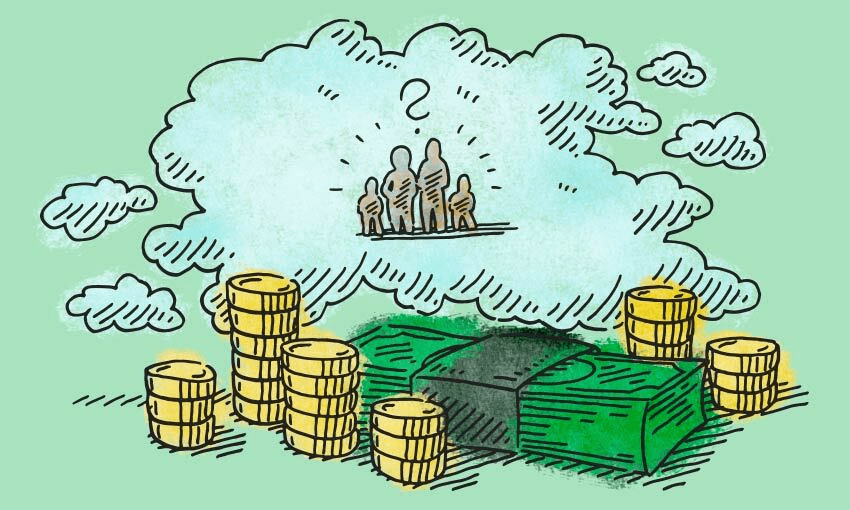Calculating the financial and social cost of carbon emissions is all the rage with decision-makers worldwide. But is there any point?
It’s as clear as the rapidly warming atmosphere: the world needs to drop its carbon emissions. Stat. But how do the powers that be decide what initiatives will help in that cause?
A favourite tool of decision-makers worldwide is what’s called benefit-cost analysis. Essentially, an accounting system that can be used for climate change.
Projects that will generate emissions get an extra carbon price tag slapped on them (since theoretically countries will have to spend money later on to soak that carbon back up again). Those that slow the rate of greenhouse gases into the atmosphere get a paycheque.
Those dollar values can be theoretical, for helping governments decide which projects get the go ahead, or actual, like our emissions trading scheme.
In the simplest forms, those calculations are based on emissions alone, but these days that’s pretty rare. The analyses have become far more complicated and factor socioeconomic costs into what’s called the social cost of carbon.
“It’s the amount of extra damage that would be inflicted by another tonne of carbon put into the atmosphere,” explains Victoria University economist Ralph Chapman.
Socioeconomic impacts might include things like the healthcare costs of people dealing with diseases like malaria, made more prevalent by climate change, or the financial loss from losing crops to droughts.
The social cost of carbon varies wildly depending on how researchers estimate it, anywhere from $1 per extra tonne of CO2 (calculated by the Trump administration) to $42 (previous US estimates).
Some of the most recent estimates include another huge social cost: how many people might die from each extra tonne of CO2, or the mortality cost of carbon.
It sounds grim but climate change is a deadly risk not just for the many plants and animals of the Earth but for us too. Think about people who die as a result of climate-change driven wildfires, who overheat on ever-increasing sweltering days, who become malnourished without proper food because of drier soils or who are killed from civil unrest due to lack of resources.
Including the mortality cost brings the social cost of carbon figure up to $258 per extra tonne.
But these kinds of estimates suck, says Chapman. “We’re trying to capture the complexity of the world in one number and the reality is: a) we don’t know all the damage we’re doing and b) it’s hard to sum it up in any realistic sense. Even if we have a qualitative sense of the damage we can’t quantify that in terms of so many dollars per tonne,” he says.
That’s a problem because countries around the world, including New Zealand, rely on these estimates when setting their budgets or deciding which climate projects to pursue.
“If California burns and a lot of houses burn down and a whole lot of ecosystems are damaged then how do you really value that? People can put up vastly different estimates. That’s the fundamental fallacy of trying to put it into dollar numbers.”
A different tact might be just to estimate the number of lives lost through climate change, rather than putting a dollar value on those lives. “Discounting and valuing lives is a complex and controversial issue,” a 2021 academic paper on the subject stated.
The 2021 paper estimates that the emissions made by an average US family over their lifetime would end up killing one other person. “It’s a bit of a concerning ratio,” says Chapman.
Other countries, who produce fewer emissions, would need way more people to produce that same kind of impact. The study estimates that it would take around 146 Nigerians, for example.
But what’s the point of all this complicated mathematics? It might help with decision-making but in the end, we should just get on with reducing emissions, says Chapman.
“The [social cost of carbon] numbers purport to give some sort of guidance to policymakers but it’s totally misleading. People who use the numbers often don’t understand them and that includes ministers.”
“It’s much better to say in the end climate change will cause this untold grief, woe and destruction, let’s just get on and reduce it.”


